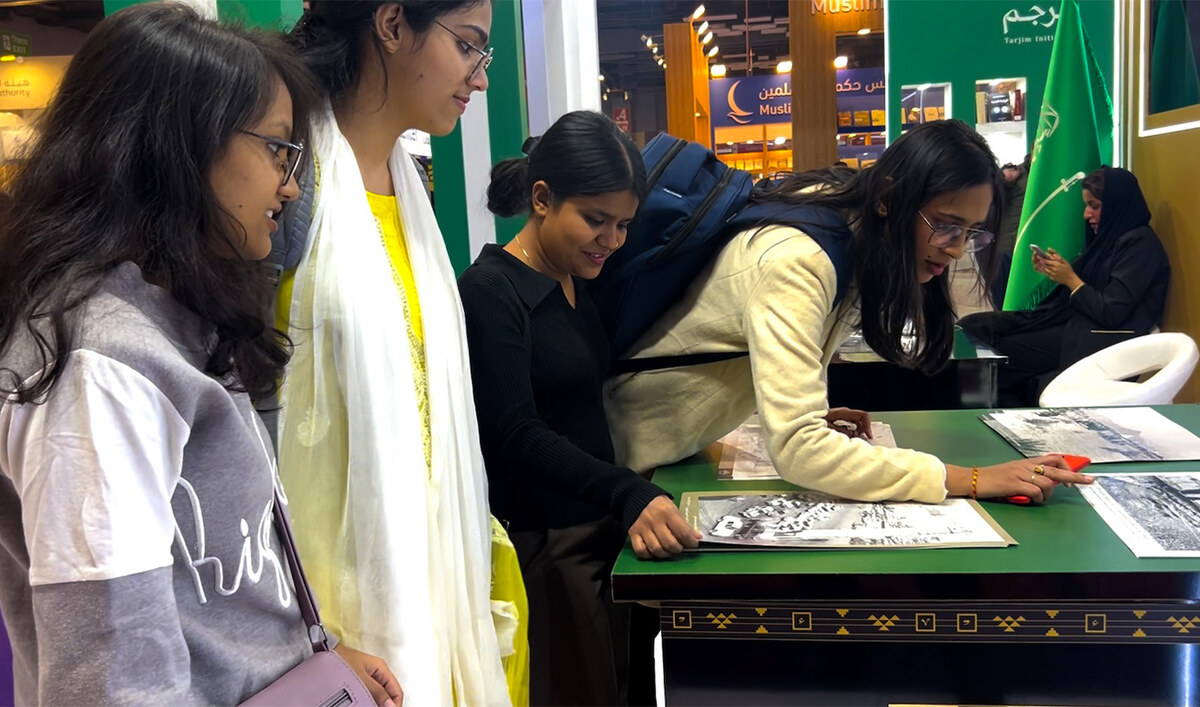PARIS: French far-right leader Marine Le Pen said she will never forgive herself for expelling her father Jean-Marie Le Pen from her party, after he died last week aged 96.
Nicknamed “the devil of the Republic” by opponents, Jean-Marie Le Pen was often openly racist, made no secret of anti-Semitic views, for which he received criminal convictions, and boasted of torturing prisoners during the war against Algeria.
Marine Le Pen took over as head of the National Front (FN) in 2011 but rapidly took steps toward making the party an electable force, renaming it the National Rally (RN) and embarking on a policy known as dediabolization (de-demonization).
She slung her father out of the party for his anti-Semitic views in 2015. But the pair had reconciled in recent years.
“I will never forgive myself for this decision, because I know it caused him immense pain,” he told the Journal du dimanche (JDD) newspaper in an interview published on its website late Sunday.
“This decision was one of the most difficult of my life. And until the end of my life, I will always ask myself the question: ‘could I have done this differently?’,” she said.
Jean-Marie Le Pen declared in 1987 that the Nazi gas chambers used to exterminate Jews are “just a detail in the history of World War II.”
In 2014, he said of Patrick Bruel, a Jewish singer critical of Le Pen, that he would be part of “a batch we will get next time.”
Addressing such remarks, Marine Le Pen said: “It’s somewhat unfair to judge him solely on the basis of these controversies.”
After his long political career, “it is inevitable to have subjects that arouse controversy,” she argued, while saying it was “unfortunate” that Jean-Marie Le Pen “got bogged down in these provocations.”
The interview marked a rare insight from Marine Le Pen into her relationship with her father, who was buried on Saturday in a quiet family ceremony in his home region of Brittany in western France.
Marine Le Pen, who stood three times for the Elysee and is likely preparing another run in 2027, is extremely discreet about her private and family life.
News magazine Paris Match posted a picture of Marine Le Pen in tears on being informed of the news of her father’s death, but deleted the image following protests from the RN.
Jean-Marie Le Pen’s death was announced to AFP on Tuesday in a statement signed “Le Pen Family.”
But Marine Le Pen, who was on a plane taking her back from the cyclone-ravaged French island of Mayotte to mainland France, only learned of the news afterwards, during a stopover in Nairobi.
Some French media have interpreted this as a sign of conflict within her family and with her two sisters Marie-Caroline and Yann.
“At the time, I didn’t believe it (his death). Then... knowing that he was in very fragile health, I called my sister to find out what was going on. And she was the one who told me,” she said.


























